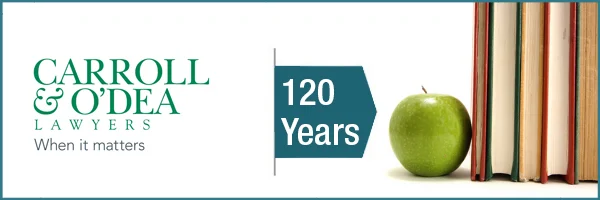
Education Law Notes – Term 1 2020
Published on March 19, 2020 by David Ford
What a year it’s been and we’re still in Term 1! Appreciating that you’ve thought of little else than COVID-19 and its impact on school life this term, I have resisted the temptation to write more about this in these Notes.
Rather, we have a note about the National Redress Scheme and a reminder that schools only have until 30 June 2020 to join the Scheme. The Scheme is one of the outcomes of the Royal Commission into Institutional Responses to Child Sexual Abuse. In this issue, we look at two more outcomes in the form of new legislation in NSW and Queensland: the Children’s Guardian Act 2019 (NSW) and changes to the Civil Liability Act 2003 (Qld), both of which commenced at the start of this month.
Finally, we include an article on one of the oldest pieces of legislation in the country of ongoing relevance to schools – the Inclosed Lands Protection Act 1901 (NSW). It continues to be a very useful tool in a principal’s kit.
Enjoy the read and know that we are always here to support you through these difficult days.
Regards,
National Redress Scheme
Does joining put government financial assistance at risk?
Until late last year, it wasn’t clear whether Australian Government financial assistance could be used to meet the costs associated with belonging to the National Redress Scheme or to making payments under it without putting the receipt of ongoing financial assistance at risk. Under the Education Act (NSW), it was difficult to know with any certainty whether joining the Redress Scheme and making payments pursuant to it could cause a school to operate for profit and therefore put its government funding at risk. Looking at the infamous section 83C, one could argue that joining the Scheme and making payments pursuant to it were part of the school’s operations. However, the NSW Guidelines issued in December 2018 and again in June 2019 said nothing about the Scheme and, on their face, suggested that joining the Scheme, which is voluntary, and then making payments which, although not voluntary once the school is in the Scheme, are in a sense also voluntary, would cause the school to operate for profit. All that has now changed!
Protecting school premises from undesirables under the Inclosed Lands Protection Act 1901 (NSW)

What can the principal do if someone comes on to the school grounds and makes a nuisance of themselves? There is legislation in NSW which helps! What offences are involved? When can the principal enlist the help of the Police? How can a banning order be used?
Child Protection Law Changes

New South Wales
The Children’s Guardian Act 2019 (NSW) is now the law. The Act expands the functions of the Children’s Guardian to include the reportable conduct scheme (previously the responsibility of the NSW Ombudsman). There are changes to reporting obligations, to the rules around investigations and to the meaning of reportable conduct.
Apart from the need to get on top of the changes, schools should urgently review their child protection policies to take into account these changes. For assistance with your policy, please contact David Ford as we can provide an up-to-date child protection policy which complies with the new legislation.
Queensland
Numerous changes to the Civil Liability Act 2003 (Qld) took effect on 2 March 2020. The reforms introduced by this legislation are in response to the recommendations by the Royal Commission into Institutional Responses to Child Sexual Abuse. In particular, the Act now includes a new Part dealing with the liability of institutions for child abuse.
Upcoming Seminars
Alliance of Girls’ Schools Australasia
Asia Pacific Summit on Girls’ Education
9 – 12 May 2020, Hobart ( date to be rescheduled) ![]()
David Ford will be addressing how schools and teachers can best respond to the growing number of students identifying as transgender, what reasonable steps should be taken to fulfil a school’s duty of care to transgender students and a school’s obligations under discrimination and privacy laws.
